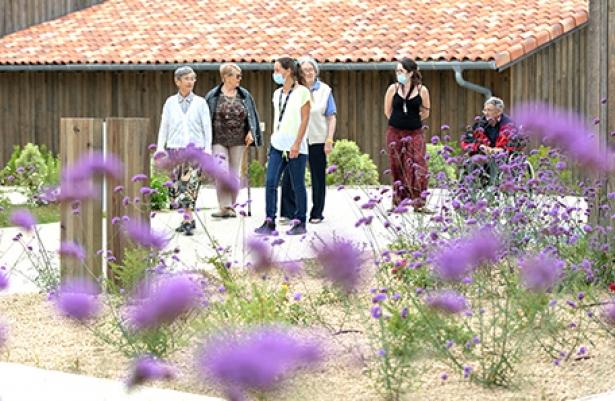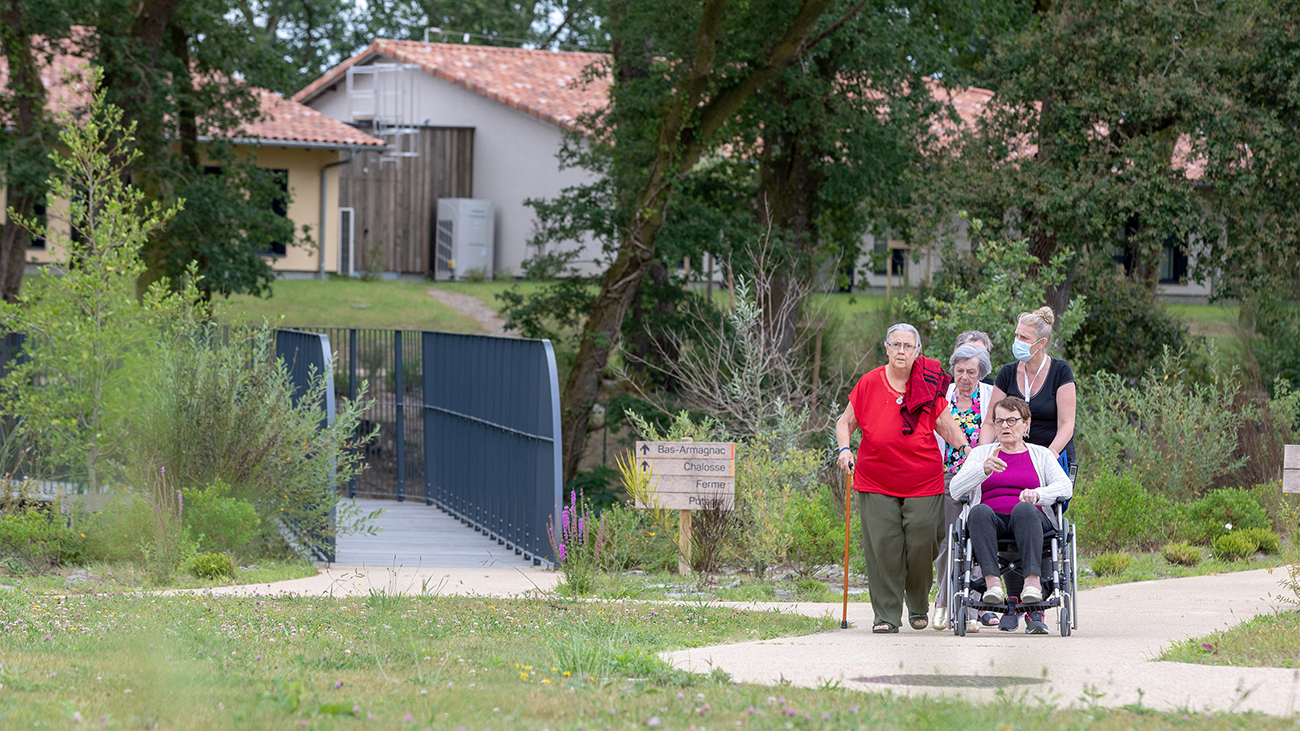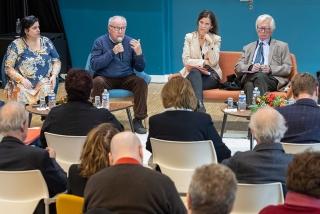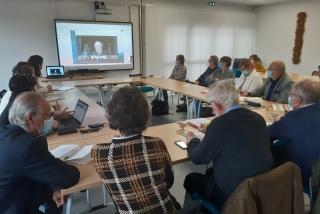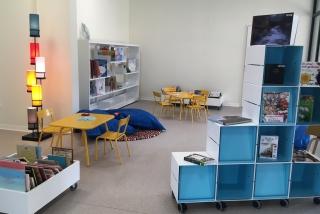Trained in palliative and pain care, Soazic DREANO-HARTZ is one of the four doctors of the Village. She chose to pursue her professional career there to participate in this “extraordinary teamwork where communication and people are at the center of concerns”. Having taken up her duties at the beginning of March, the coronavirus crisis strongly impacted her mission: all the admissions planned for the beginning of April have indeed been postponed. “During the deconfinement, we had to recontact all the families of residents who had been pre-admitted at the beginning of the year. Many questions then emerged. We had to check that everyone was still in agreement with their life plan in the Village. We took all the situations on a case-by-case basis,”she explains. This huge work allowed 90 residents to enter the Village between June 11 and July 9.
Although it is too early to give a first objective feedback, Dr DREANO-HARTZ shares his initial observations: “At the end of this very difficult period for the patients and their families, I expected to have a lot of anxiety or even serious impact on patients’ cognitive impairment. But it didn’t happen. For many of them it was even the opposite, allowing us to drop their anti-anxiety medication very rapidly. I was amazed by these fast favorable developments.” The doctor adds that for others, more fragile, the teams were able to resort, as the philosophy of the establishment offers, to non-drug therapy, for example by offering the villagers the possibility of releasing their excess energy or anxiety by walking as much as necessary in the park… For her, the first results are very encouraging.
Complementary profiles to better meet needs
In one of the 16 households, Patricia PEREZ-HUSSON, with 19 years of experience in a nursing home, officiates as hostess. As a medico-psychological aid, she noticed after only a month and a half a real positive change in the behavior of some residents. “When we prepare the meals, the residents participate and sometimes even the gentlemen help us by setting the table or clearing it. We have three very dynamic residents here and they have coached the others. It is a real satisfaction to see some who had very little autonomy when they arrived to open up to the life of the house and participate in the tasks of daily life.” Her partner that day, Paul PANTALACCI, a caregiver, had long wanted to orient his professional path towards the management of Alzheimer's disease. His experience in home care is complementary to the care facility one of his colleague: a deliberate organization that allows teams to have several points of view to discuss each situation encountered and thus provide a targeted and shared response. Patricia PEREZ-HUSSON underlines that “this forced us to take back our brands as professionals. It is a real job to change our practice and our previous rhythm... not to do "in place of"..." For Paul PANTALACCI, "this exceptional framework of exercise, in particular adapting to the rhythm of the residents, gives us the opportunity to innovate in our practices”.
Within the team of 12 nurses from the Village, Charlène GIMET was registered as a volunteer before being recruited. After a year and a half of following the project closely, she wanted to participate in it in a professional manner. “It takes time for everyone to find their place, but I find that what was proposed to us in the design of the project is indeed being achieved. For me, the supportive care developed here is a real public health project. Today this model concerns the management of Alzheimer's disease but I think it will be implemented for all pathologies in the future. It will be an accomplishment for me to have participated in such a meaningful project."
